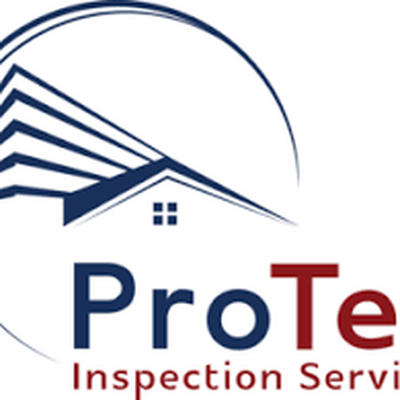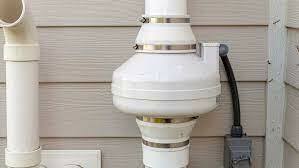Notifications
ALL BUSINESS
COMIDA
DIRECTORIES
ENTERTAINMENT
FINER THINGS
HEALTH
MARKETPLACE
MEMBER's ONLY
MONEY MATTER$
MOTIVATIONAL
NEWS & WEATHER
TECHNOLOGIA
TV NETWORKS
VIDEOS
VOTE USA 2026/2028
INVESTOR RELATIONS
DEV FOR 2025 / 2026
ALL BUSINESS
COMIDA
DIRECTORIES
ENTERTAINMENT
FINER THINGS
HEALTH
MARKETPLACE
MEMBER's ONLY
MONEY MATTER$
MOTIVATIONAL
NEWS & WEATHER
TECHNOLOGIA
TV NETWORKS
VIDEOS
VOTE USA 2026/2028
INVESTOR RELATIONS
DEV FOR 2025 / 2026
About Me
 protec inspection
protec inspection Are You a Realtor Looking for a Termite Inspection Protec Termite Inspections in Washington D C is licensed and trained to identify termite activity
 protec inspection -
5 hours ago -
Business -
radon testing
inspect services
-
25 views -
0 Comments -
0 Likes -
0 Reviews
protec inspection -
5 hours ago -
Business -
radon testing
inspect services
-
25 views -
0 Comments -
0 Likes -
0 Reviews

When managing a commercial property, certain risks often go unnoticed—despite focusing on concerns like building structure, fire safety, and tenant well-being. However, one serious threat that’s often overlooked is radon gas. As an invisible, tasteless, and odorless substance, radon can accumulate indoors and pose significant health risks, especially in commercial buildings. In this post, we’ll explore why commercial radon testing is essential for business owners and why it should be a critical component of every property’s inspection routine.
Radon is a naturally occurring radioactive gas produced by the decay of uranium in soil, rock, and water. While radon poses no immediate danger outdoors, it becomes hazardous when trapped inside buildings. Commercial buildings—due to their structure and ventilation conditions—are particularly vulnerable to radon infiltration. The gas can enter through cracks in the foundation, gaps in walls, or other openings, and build up to dangerous levels over time. This makes commercial radon testing an essential part of maintaining a safe environment for everyone within the property.
Radon exposure is the second leading cause of lung cancer after smoking, responsible for around 21,000 deaths annually in the U.S., according to the Environmental Protection Agency (EPA). The silent threat of radon means that many people may not even realize they’re at risk. For employees, customers, and visitors inside commercial buildings, this means potential exposure to radon could increase the likelihood of lung cancer over time. As such, commercial radon testing is crucial for preventing health risks in the workplace.
Beyond the health implications, failure to perform radon testing can have legal and financial consequences for businesses. Affected employees might take legal action if exposed to unsafe radon levels, resulting in costly lawsuits and damage to the company’s reputation.
Over the years, radon regulations have become stricter, with more jurisdictions now mandating radon testing in commercial buildings. Here’s an overview of the legal landscape surrounding radon testing:
Many local, state, and federal agencies have set standards that require commercial radon testing. These guidelines establish acceptable levels of radon and outline the necessary testing procedures for commercial properties. Non-compliance with these regulations can result in fines, penalties, or other legal repercussions.
Building codes are increasingly incorporating measures that resist radon infiltration, particularly in areas known for high radon levels. In some regions, building codes require the installation of radon-resistant systems during construction. Regular radon testing may also be mandated to ensure that these preventive measures are working as intended.
Employers are obligated to provide a safe working environment, which includes addressing environmental hazards like radon. Certain workplace safety regulations now require businesses to test for radon and take action if levels are found to be elevated. Failure to comply can result in legal action, penalties, or fines.
For property buyers, sellers, and investors, radon testing is an increasingly important aspect of commercial real estate transactions.
Many buyers now request radon testing as part of their due diligence process. Radon test results provide essential information about the potential health risks associated with a property and can help buyers make informed decisions. In some cases, buyers may use the test results to negotiate repairs or even reconsider their purchase.
Sellers who conduct commercial radon testing and take steps to mitigate radon risks increase the likelihood of a smooth transaction. By sharing test results and demonstrating a proactive approach, sellers build trust with prospective buyers and minimize the risk of future disputes over radon-related issues.
Some commercial insurance companies require evidence of radon testing and mitigation before issuing policies. Property owners must ensure they meet these insurance requirements to avoid gaps in coverage and potential liability.
Conducting commercial radon testing provides several key benefits for property owners, tenants, and the broader business community:
Radon exposure is a serious health risk that can lead to lung cancer and other respiratory illnesses. Performing radon tests helps ensure that commercial properties maintain safe indoor air quality, protecting employees, customers, and visitors. Ensuring a safe environment should be a top priority for any business.
By adhering to radon testing regulations, property owners mitigate the risk of legal action, fines, and penalties. Regular radon testing helps to identify potential issues before they escalate, ensuring compliance with health and safety regulations and reducing the chance of costly legal disputes.
Commercial properties that undergo radon testing and address any issues are more attractive to potential buyers or tenants. A radon-free environment not only boosts property value but also helps reduce vacancies and maintain strong rental income. Proactively managing radon risks preserves the long-term value of your property.
A healthy work environment improves employee satisfaction, which leads to higher productivity and morale. When employees see their employer taking steps to protect their health, they feel more valued, motivated, and engaged. This leads to a more positive and productive workplace environment, which benefits the business overall.
Addressing radon risks through commercial radon testing demonstrates a commitment to sustainability and corporate social responsibility. Property owners who prioritize the health of their tenants and employees contribute to the well-being of the community, aligning their business practices with broader environmental and social goals.
Radon is a dangerous but often overlooked threat in commercial buildings. Regular commercial radon testing is an essential step in safeguarding the health of occupants, ensuring compliance with regulations, and preserving the long-term value of your property. By prioritizing radon testing, property owners not only protect the health of their employees and customers but also reduce the risk of legal issues, preserve property value, and improve overall business operations.
If you’re ready to take action and protect your property from the dangers of radon, contact Protec Inspections. We specialize in commercial radon testing and mitigation, offering expert services in Maryland, Pennsylvania, Washington D.C., and Virginia. Get in touch today to schedule a thorough inspection service and ensure the safety of your building’s occupants.
